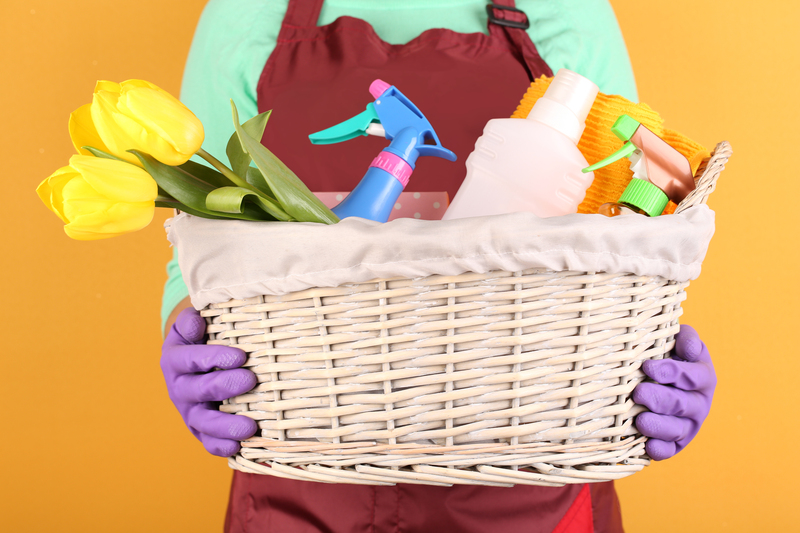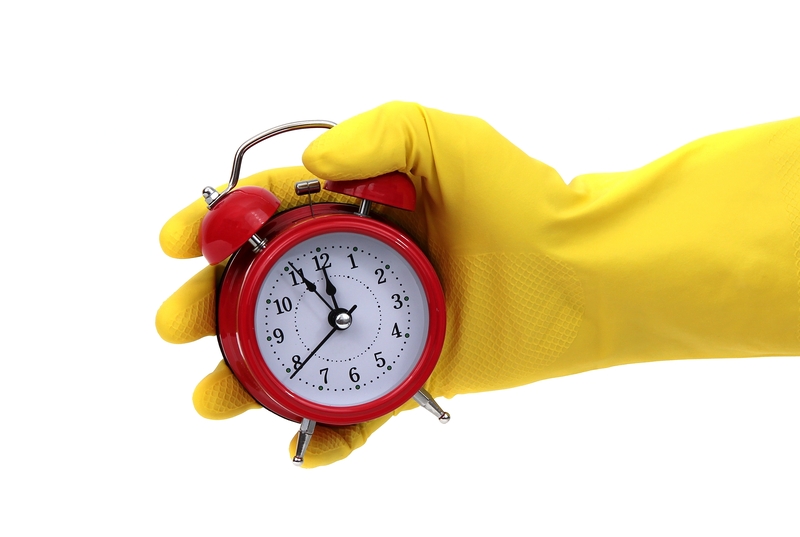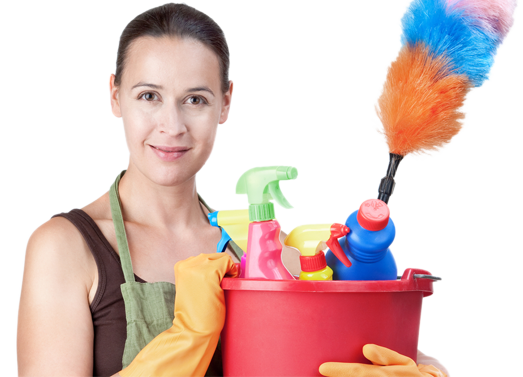Unveiling Radiance: Expert Ways to Clean Your Jewellery
Posted on 17/09/2025
Unveiling Radiance: Expert Ways to Clean Your Jewellery
Jewellery is not just an accessory; it's a reflection of personality, a treasured keepsake, and often an heirloom passed down through generations. As time passes, however, dust, oils, and daily grime can dull its radiant brilliance. The good news: with the right knowledge and techniques, you can restore your jewellery's sparkle safely at home. This comprehensive guide will unveil expert ways to clean your jewellery, ensuring your pieces remain dazzling for years to come.
Why Regular Jewellery Cleaning is Essential
Your prized jewels deserve regular attention! Over time, jewellery attracts body oils, lotions, perfumes, dust, and moisture, all of which can result in unsightly build-up. Besides losing their sparkle, dirty jewellery can harbor bacteria, skin irritants, and even damage delicate stones and settings. Regular cleaning not only enhances appearance but also extends the life and integrity of your beloved pieces.
- Maintains Appearance: Restores original shine and brilliance.
- Prevents Damage: Removes substances that can weaken clasps and prongs.
- Hygiene: Reduces germ and bacteria buildup.
- Protects Investment: Keeps valuable items looking their best.

Understanding Your Jewellery: Know Before You Clean
Not all jewellery is created equal. From precious metals to delicate gemstones and costume pieces, each type requires different care. It's vital to understand the materials used in your jewellery before attempting any cleaning method, as the wrong technique can do more harm than good.
- Precious Metals: Gold, silver, platinum, and others each have unique properties.
- Gemstones: Diamonds, emeralds, rubies, sapphires, opals, pearls, etc., can be sensitive to chemicals and temperature.
- Costume Jewellery: Often features plated metals, adhesives, and faux stones that may react poorly to water or solvents.
When in doubt, consult a professional jeweller for advice, especially for valuable or fragile pieces.
Expert Ways to Clean Your Jewellery at Home
1. How to Clean Gold Jewellery
Gold is prized for its luster and resistance to tarnish, but it still benefits from periodic cleaning--especially when exposed to lotions or perfumes. Here's how you can safely clean gold jewellery:
- Create a gentle bath: Mix a few drops of mild dish soap with warm water.
- Soak your gold: Place pieces in the solution for 10-15 minutes.
- Gently brush: Use a soft-bristled brush (like a baby toothbrush) to dislodge dirt in crevices.
- Rinse and dry: Rinse thoroughly with lukewarm water and pat dry with a lint-free cloth.
Pro Tip: Avoid using harsh chemicals like bleach or abrasive scrubbers on gold, as they can scratch or discolor the metal.
2. Sparkling Clean: Silver Jewellery Care
Silver jewellery, while timeless and beautiful, can develop a pesky tarnish over time due to exposure to air and moisture. To restore its original shine, use these expert methods:
- Baking Soda Paste: Combine baking soda with water to form a thick paste. Apply with a soft cloth, gently rubbing the tarnished areas. Rinse and pat dry.
- Aluminum Foil Bath: Line a bowl with aluminum foil, shiny side up. Add hot water and a tablespoon each of baking soda and salt. Submerge your silver jewellery, and watch as the tarnish transfers from the piece to the foil!
- Silver Polishing Cloth: Use a special silver-cleaning cloth to buff the metal to a high shine.
Note: Avoid dipping jewellery with precious stones in chemical dips and always check if your silver is plated or solid before choosing a cleaning method.
3. Reviving the Brilliance: Diamond and Gemstone Jewellery
Diamonds may be the hardest natural substance, but they're still prone to greasy build-up that dulls their sparkle. Here's the safe way to restore sparkle to diamond jewellery and other gemstones:
- Mild Soap and Water: Mix a few drops of mild dish soap with warm water. Soak the jewellery for 20-30 minutes.
- Soft Brush: Gently brush under stones and around prongs, where most dirt accumulates.
- Rinse: Place pieces in a strainer and rinse under warm water to prevent accidental loss.
- Pat Dry: Use a soft, lint-free cloth for drying.
Warning: Some gemstones like opals, pearl, turquoise, and emeralds are soft and porous. Avoid soaking these and use only a damp cloth for cleaning.
4. The Gentle Approach: Caring for Pearls
Pearls demand delicate care due to their organic nature. To clean pearl jewellery:
- No harsh chemicals: Never expose pearls to ammonia, vinegar, or alcohol.
- Wipe after each wear: Use a soft, damp cloth to remove oils and sweat.
- Deep clean occasionally: Dip a cloth in lukewarm water with a drop of mild soap, then wipe each pearl gently. Avoid soaking.
- Lay flat to dry: Prevent stretching the string by placing the strand flat on a towel.
Prolonged exposure to water can damage the silk thread. Have your pearls restrung if you notice fraying.
5. Costume Jewellery: Keeping Non-Precious Pieces Bright
Costume jewellery relies on base metals, plating, glue, and faux stones--materials that are more susceptible to damage from water and chemicals. Follow these expert tips:
- Use only dry cloths: Wipe gently to remove oils and dust.
- Avoid water immersion: This can loosen glue or tarnish the plating.
- If needed, a light damp cloth: For stubborn grime, lightly dampen a cloth with water and a drop of dish soap. Wipe gently, then use a dry cloth to remove moisture instantly.
- Finish with polishing cloth: Buff gently for extra shine.
Never submerge costume pieces or use ultrasonic cleaners, as they may loosen stones or strip finishes.
Advanced Care: Ultrasonic and Steam Cleaners
For professional-grade jewellery cleaning, you may use ultrasonic or steam cleaners--tools that offer a deep, thorough clean using sound waves or high-temperature steam. These should be used with extreme caution:
- Safe for: Diamonds, gold, some sapphires, and rubies.
- Not safe for: Pearls, opals, emeralds, and any glued or plated items.
- Follow manufacturer's instructions: Improper use can cause irreparable damage!
When in doubt, consult a jeweller before using advanced cleaning tools on your valuables.
Expert Tips for Routine Jewellery Maintenance
- Remove jewellery before: Showering, swimming, cleaning, or applying lotions/perfume.
- Store properly: Use soft pouches or lined boxes to prevent scratches and tangling.
- Upkeep prongs and clasps: Periodically inspect for loose settings and take to a jeweller for repairs.
- Regular checks: Set reminders to inspect and clean your jewellery at least once a month.
Regular attention will keep your jewellery sparkling and reduce the risk of accidental loss or breakage.
Common Mistakes to Avoid When Cleaning Your Jewellery
- Excessive scrubbing: Can scratch metals and loosen settings.
- Harsh chemicals: Bleach, ammonia, and even toothpaste can damage both metals and stones.
- Showering with jewellery: Soap and hard water can build up and tarnish your pieces faster.
- Using the same method for all pieces: Always consider the type and condition of the jewellery.
DIY Jewellery Cleaning Solutions: What Works and What to Avoid
Safe At-Home Cleaning Recipes
- Soap and Water: The gold standard for most jewellery types.
- Baking Soda Paste: For solid silver, sparingly.
- Polishing cloths: For a quick shine without residue.
Cleaning Methods to Avoid
- Toothpaste: Popular internet hack, but too abrasive for most jewellery.
- Acids (lemon juice/vinegar): Can corrode certain metals and damage stones.
- Boiling water: Can crack fragile stones or loosen adhesives.
- Submerging pearls and porous gems: Causes irreversible damage.
When to Call in the Professionals
For delicate, antique, or high-value jewellery, or when the piece has intricate settings, it's wise to hire a professional cleaning service. Signs your jewellery needs expert care include:
- Stubborn dirt: Grime that won't come off with gentle cleaning.
- Loose stones: Risk of loss during regular use or cleaning.
- Surface damage or fragile components: Hairline cracks, weak clasps, or bent prongs.
- Unidentifiable metals/stones: Unsure of the proper cleaning method.

Frequently Asked Questions on Jewellery Cleaning
- How often should I clean my jewellery?
Wipe down after each wear and perform a deep clean every few weeks, depending on usage and exposure. - Can ultrasonic cleaners damage my jewellery?
Yes, certain gemstones and glued settings are at risk. Only use if you're confident about the material's suitability. - Is it safe to sleep with jewellery on?
It's best avoided; sleeping with jewellery can cause it to warp, loosen, or tangle. - What is the safest all-purpose cleaner?
Warm water and mild dish soap is safe for most metals. Always check for exceptions depending on the stone or setting.
Conclusion: Making Your Jewellery Shine Brighter Than Ever
Unveiling the radiance of your cherished jewels is simpler than you think. By understanding the materials, applying the right techniques, and avoiding common mistakes, your jewellery can remain as dazzling as the day you acquired it. For truly valuable or delicate items, do not hesitate to seek professional cleaning.
Whether your treasures are sparkling diamonds, glowing gold, or vibrant costume pieces, regular care will ensure that every piece stays brilliant, beautiful, and ready to shine on every occasion. Start a cleaning routine today--your jewellery will thank you!




